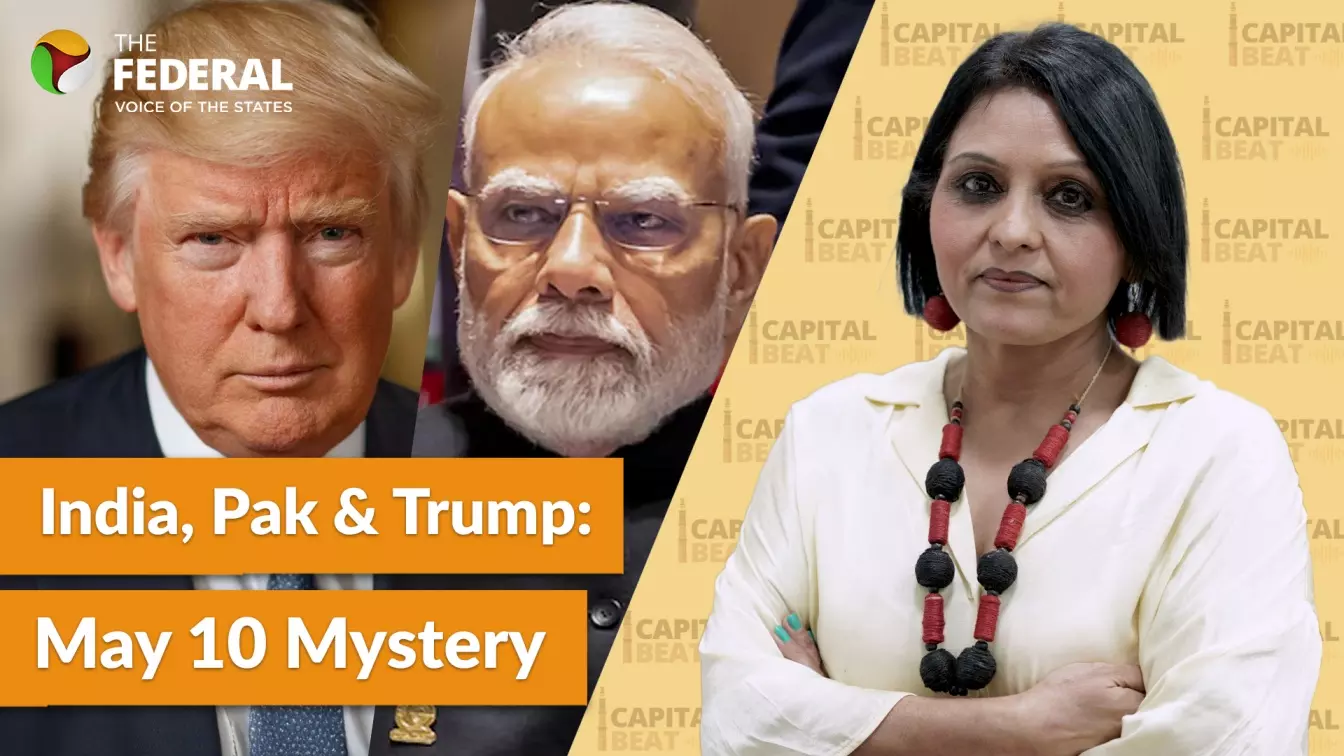
Did Trump dangle tariff carrot to broker Indo-Pak truce? I Discussion
Trump’s legal team claims his tariff strategy stopped the India-Pakistan conflict; could a US court ruling now reignite tensions?

In this Capital Beat episode, international relations experts Dr Aftab Kamal Pasha and Prof. Mohsin Raza Khan joined the discussion on Donald Trump’s explosive claim in a US federal court that his administration’s tariff threats helped stop the recent India-Pakistan conflict.
With no official response from India so far, the revelation has stirred debate over diplomatic autonomy, political narratives, and public perception.
A wild assertion
The Trump administration has told a New York court that a judicial check on its global tariffs could destabilize peace in South Asia. US Commerce Secretary Howard Lutnick justified Trump’s sweeping tariff policy by claiming it brought about the recent ceasefire between India and Pakistan.
Pasha called the claim “wild,” noting that tariffs were part of Trump’s broader political agenda, not a peace mechanism. “It’s strange to link economic policy with a military ceasefire between two nuclear powers,” he said, pointing out that India has maintained the ceasefire was mutually agreed upon by military leaders from both sides—not prompted by foreign intervention.
Also read: Adverse verdict would risk India-Pak ceasefire, says Trump team while defending tariffs
Conflicting narratives
The contradiction between American and Indian versions has caused confusion. Khan said the timing of the US assertion throws up serious credibility issues for the Indian government. “If the military was indeed carrying out successful strikes, why would there suddenly be a ceasefire?” he asked.
Pasha added, “America has clearly used its leverage, especially over India, to claim this ceasefire. It undermines India’s strategic narrative.” He stressed that the public, especially BJP’s political base, is now caught between nationalistic rhetoric and international legal documents suggesting otherwise.
Domestic fallout for Modi
Khan said if the Indian media amplifies Trump’s claim, it could dent PM Modi’s carefully crafted image as a strongman. “Until now, Modi’s war rhetoric had gone unchallenged. But this puts him in a spot. If he refutes the claim, ties with Trump sour. If he stays silent, it looks like a tacit admission,” he said.
He also highlighted that Modi has already “silenced” other BJP leaders from commenting on Operation Sindoor, making himself the sole voice—a move that may now backfire. “Once this gets traction, it’ll be hard for BJP workers to justify Operation Sindoor to voters,” he noted.
Also read: Trump's ceasefire claim in US court: MEA says 'no discussion on tariffs'
Morale of armed forces
The panel also raised concerns about the impact on military morale. Pasha said while the armed forces fulfilled their role during the operation, it’s the political leadership that “developed cold feet” and reversed course under pressure.
“The army did its job. But the leadership’s sudden retreat could be demoralizing,” he said.
Khan added that serving officers won’t speak out, but disappointment may simmer below the surface. “It’s not just the army. Even voters who backed Modi for tough decisions may feel let down,” he said.
Trump’s political calculations
Pasha pointed out that Trump’s move is about domestic optics. “He’s trying to show the American public that his tariffs had global impact. But the court hasn’t bought it, and his own economists are warning of recession,” he said.
Nonetheless, he warned that Trump is likely to continue using the ceasefire claim to pressure India—not just for trade concessions, but to buy arms and align with US interests in the region. “This isn’t just about past events. The pressure will only increase,” Pasha said.
Also read: US didn’t broker India-Pak ceasefire, it happened only through DGMOs: Jaishankar
Strategic crossroads
The episode concluded with the panel agreeing that India is in a tight diplomatic spot. “The prime minister cultivated the image of being untouchable, but this episode exposes the vulnerability,” said Khan.
Whether or not the public believes Trump’s claim, both panellists said the fence-sitters—the undecided voters—may start questioning the official narrative. “This could dent Modi’s image just enough to matter electorally,” Pasha said.
The content above has been generated using a fine-tuned AI model. To ensure accuracy, quality, and editorial integrity, we employ a Human-In-The-Loop (HITL) process. While AI assists in creating the initial draft, our experienced editorial team carefully reviews, edits, and refines the content before publication. At The Federal, we combine the efficiency of AI with the expertise of human editors to deliver reliable and insightful journalism.

